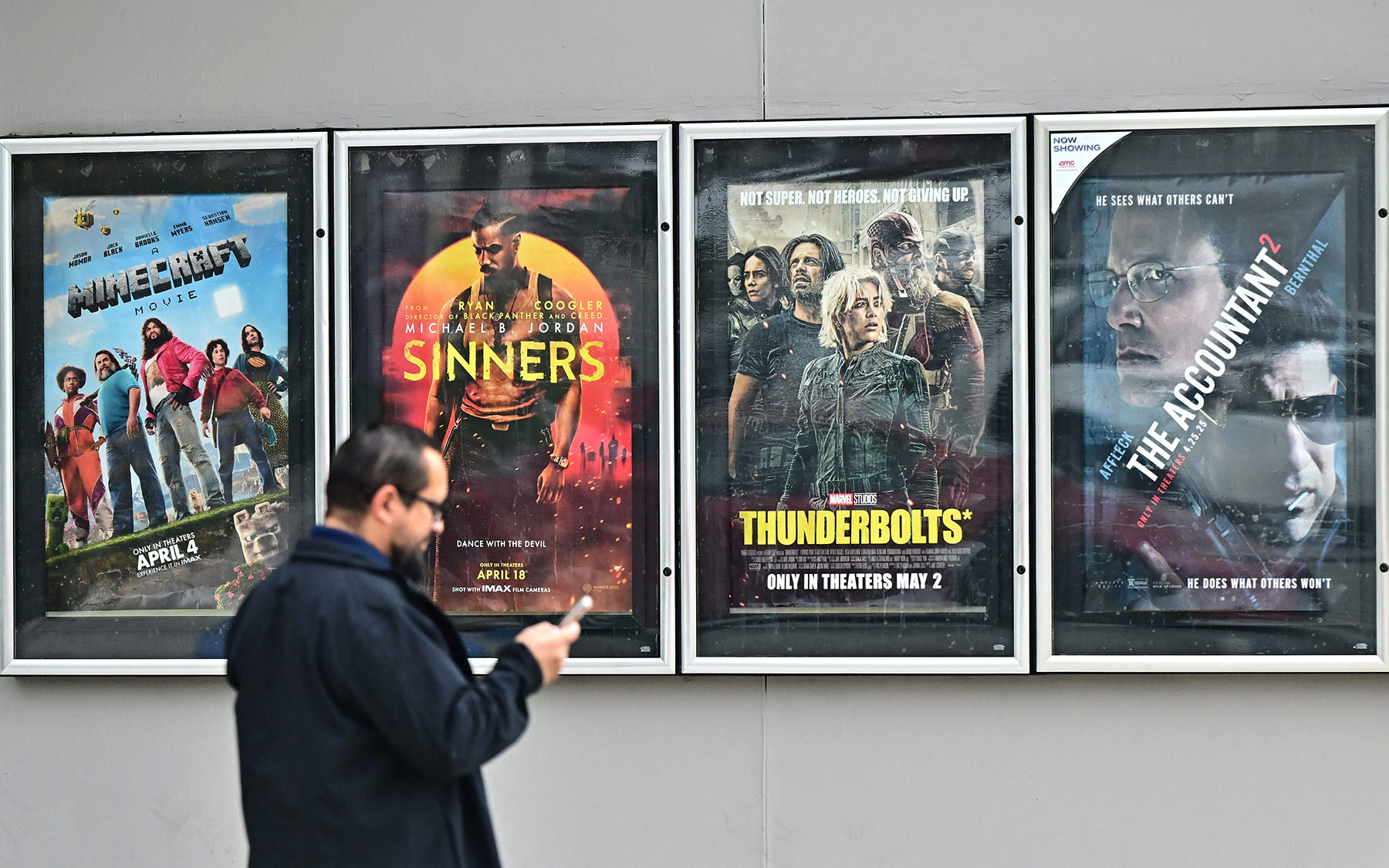
The film industry in Australia and New Zealand is bracing for the impact after United States President Donald Trump said on Sunday he would impose a 100 percent tariff on foreign movies, with stakeholders in the sector calling for government support amid "global shocks".
"There are many unknowns for our industry, but until we know more, there's no doubt it will send shock waves worldwide," said Matthew Deaner, chief executive of Screen Producers Australia, which represents screen businesses and other industry stakeholders.
"For the Australian industry it reinforces the need for the government to focus immediately and swiftly on building a resilient local industry that can withstand global shocks like this."
READ MORE: Trump says to impose 100% tariff on all foreign movies
Trump wrote on social media that he was authorizing an immediate start to the process of instituting a 100 percent tariff on all movies "produced in foreign lands". The White House later said it had not made any final decisions.
Australia's Home Affairs Minister Tony Burke told local media that he is working with the industry and "monitoring this closely".
"Nobody should be under any doubt that we will be standing up unequivocally for the rights of the Australian screen industry," Nine News TV quoted him as saying.
Foreign Minister Penny Wong told Seven Network TV on Tuesday: "We obviously will be pressing our view about this to the US administration. … We want to be able to see films where you get both Aussie actors and American studios working together."
Australian film and video production businesses, which also offer locations and studios for major Hollywood franchises, helped reap more than A$4 billion ($2.6 billion) in 2022, according to government figures.
Kristian Kolding, head of consulting for the economic advisory Oxford Economics Australia, told China Daily that the "devil will be in the detail when considering the impact of tariffs on 'foreign-made' movies".
"Who will pay, how will it be administered, how will it be enforced?" Kolding said. "These are questions that are more easily answered when it comes to goods imports — but harder when you consider services such as films.
"Irrespective of that, increasing the cost of making 'Hollywood' movies in Australia will discourage movies from being made here relative to the US. That said, if the tariff is unilaterally applied then we'll remain on a level playing field with other global moviemaking destinations, which will soften the blow somewhat."
The Media, Entertainment and Arts Alliance, a union and industry advocate for Australia's creative professionals, said Australia's film industry is critically important for the economy.
"In recent years Australia has become an increasingly attractive filming location for overseas productions, including those from the US.However, we also need an Australian film industry that is balanced between local and international production, one that fulfills its role of reflecting Australia's culture, telling our unique stories, both to local and international audiences."
Key driver
The US is similarly a key driver of New Zealand's inbound screen industry. New Zealand's film sector generates $2.1 billion a year, with about one-third of revenue from the US, New Zealand's Foreign Affairs and Trade Ministry said.
The film industry has also given a boost to the country's tourism sector.
ALSO READ: Australia, NZ pledge support for film industry after Trump proposes tariffs
The impact on the local economy over the past more than 20 years of tourism related to The Lord of the Rings trilogy, followed by The Hobbit trilogy, has been estimated to be worth $377 million a year, the New Zealand Film Commission said.
"We've got an absolutely world-class industry," New Zealand's Prime Minister Christopher Luxon said on Monday.
The country is "the best place" to make movies in the world, he said. "So we'll have to see the detail of what actually ultimately emerges."
Contact the writers at xinxin@chinadaily.com.cn


